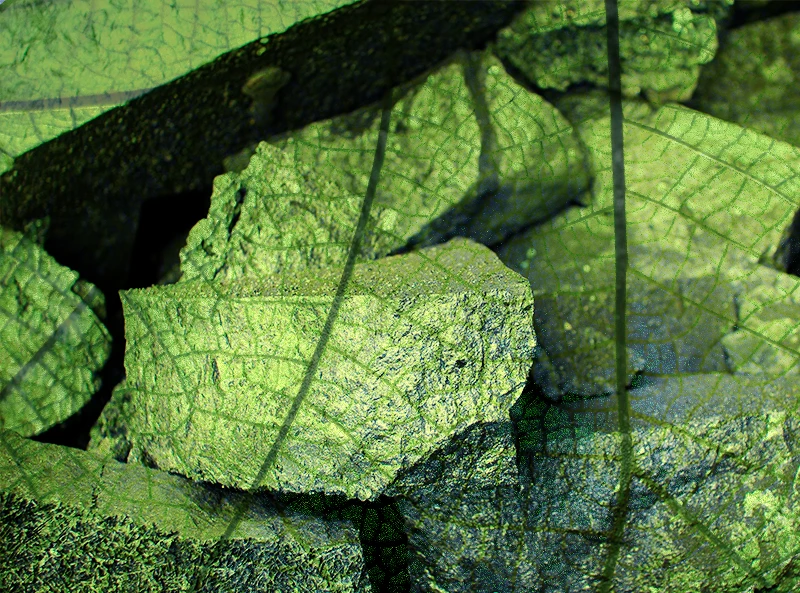Akronim: BIOKARBONIZAT
Nr projektu: FENG.01.01-IP.01-A0SR/24

Project objective:
Development of an innovative technology for the production of green ferrosilicon using environmentally neutral bioreductants in terms of CO₂ emissions, fully replacing currently used fossil reductants – hard coal and coke – and powered by zero-emission electricity generated by a dedicated photovoltaic installation.
PROJECT
VALUE:
PLN 101,330,550.33
ELIGIBLE
PROJECT COSTS:
PLN 79,968,059.95
AMOUNT OF
EUROPEAN FUNDING:
PLN 35,220,874.76
IMPLEMENTATION
PERIOD:
from 01/11/2024 to 30/06/2027
The subject of the project covers the implementation of two interrelated modules:
R&D and Greening of Enterprises.
Within the R&D Module, industrial research and development work will be carried out, resulting in the development of an innovative technology for the production of ferrosilicon using bioreductants that are environmentally neutral in terms of CO₂ emissions. These will fully replace the currently used fossil reductants – hard coal and coke. The planned work includes the development of a technological model and process parameters for operation in resistance-arc furnaces using bioreductants with defined and developed physico-chemical properties. Technological tests will also be conducted under real-world conditions. The resulting technology will lead to improved economic efficiency of production (increased process yield) and a reduction in CO₂ emissions from fossil fuels.
Within the Greening of Enterprises Module, the construction of a photovoltaic installation with a capacity of approximately 15 MW is planned. As a result of this investment, an annual electricity production of around 16,690 MWh, sourced entirely from renewable energy, will be achieved. This will contribute significantly to reducing harmful emissions into the atmosphere (avoided annual emissions based on emission factors for electricity published by KOBIZE in 2022): CO₂ – 11,433 tonnes. SOx/SO₂ – 7.28 tonnes, NOx/NO – 7.61 tonnes, CO – 4.36 tonnes, Dust – 0.3 tonnes.
The environmental benefits achieved will translate into real and measurable advantages for the company, including a significant reduction in the carbon footprint of the production process, lower energy purchasing costs, and decreased exposure to fluctuations in the energy market.
Implementation stages:
R&D Module
Development of a basic technological model for the production of high-grade silicon alloys with a minimum silicon content of 75% by mass in 12 MVA furnaces
Production of a batch of bioreductants intended for use in the smelting process of high-grade silicon alloys and determination of their technical and physico-chemical parameters
Development of an extended technological model for the production of high-grade silicon alloys by introducing parameterised data related to the use of bioreductants
Development of IT-based measurement, control and regulation systems, including elements of the charging system for bioreductants used in the production of high-grade silicon alloys
Development of a production technology for high-grade silicon alloys with a minimum silicon content of 75% by mass using bioreductants as substitutes for carbonaceous fossil raw materials
Greening of Enterprises Module
Preparatory work for implementation
Preparation of project documentation
Construction of the photovoltaic installation
Results of the project and its recipients:
The result of the project will be an innovative technology for the use of bioreductants in the production of silicon alloys with a minimum silicon content of 75% by mass in resistance-arc furnaces. This process innovation will be implemented within the company’s own operations, with the primary benefit being an increase in the daily output of ferrosilicon smelting and a reduction in the specific electricity consumption index.
Additional outcomes of the implementation include: reduction of CO₂ emissions from the production process, diversification of the types and sources of reductants, and, in the future, independence from fossil-based reductants or those derived from the thermochemical processing of hard coal.
The introduction of FeSi75 produced using bioreductants that are environmentally neutral in terms of CO₂ emissions aligns with climate policy objectives and meets the expectations of customers who aim to adhere to this trend.
Source of financing:
Project co-financed by EU funds within the European Funds for Modern Economy Programme, measure FENG.01.01 – Strand SMART.
#EuropeanFunds
This page uses cookies to help us in providing our services at the highest level. By using our website, you agree to the use of cookies.